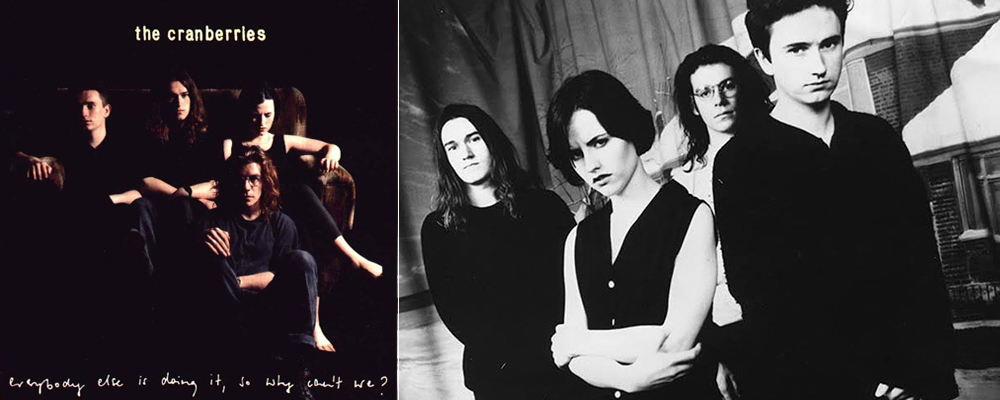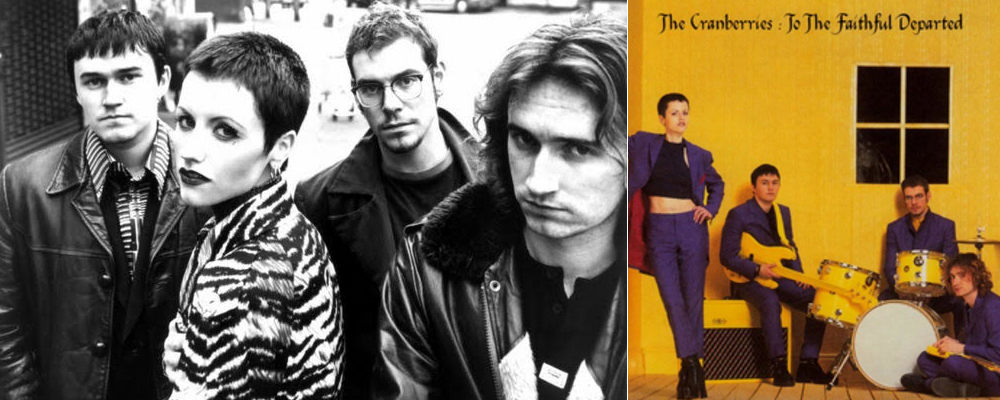A Voice That Represented a Generation: Remembering The Cranberries’ Dolores O’Riordan
Jordan Bailey
“Everybody Else is Doing it, So Why Can’t We?” is the name of The Cranberries’ 1993 debut album. Contrary to its name, however, the Dolores O’Riordan-lead Irish band managed to do what many from that era failed to, which was to leave an indelible mark on the ever-changing landscape of alt-rock music. Though after many years of relevancy, today it was reported that O’Riordan passed away at the age of 46. In her wake is not only normality-shattering vocals, generosity in spirit and an ever-lasting sound, but much, much more.
As news of O’Riordan’s passing moved around the world Jan. 15, an outpouring of support and remembrances came forward including from fellow musicians Duran Duran, Hozier, Dave Davies of The Kinks and fellow Irish band Kodaline. Even the President of Ireland Michael Higgins took time to tell the world of O’Riordan’s legacy in her saying, “To all those who support Irish music, Irish musicians and the performing arts her death will be a big loss.” What Higgins tapped into during his statement shouldn’t be underappreciated. The Cranberries are said to be the biggest Irish music export since U2 – which is saying a lot considering Bono and company’s massive worldwide influence. The Limerick native used a special blend of melancholy and coming-of-age struggles, dowsing The Cranberries’ songs in an almost unachievable universality.
From “Everybody Else is Doing it, So Why Can’t We?” came the ever-lasting “Linger” which left Irish radio for the states in 1993. O’Riordan’s 18-year-old voice slashed through the orchestral arrangements with her signature Limerick lilt making it an immediate staple of early-90’s culture. So too was “Dreams” from the same album, a fluttery cadence from the singer juxtaposed a reverbed guitar from longtime bandmate and songwriter Noel Hogan. O’Riordan’s traditional Irish voice shined here as well with her silver-tongued yodeling to close out the track – a style she learned from her father who would often sing the classic American Western tune “The Cattle Call” when O’Riordan was a child. Perhaps no song showed her pension for Irish singing more than the group’s biggest single “Zombie” from their ’94 release “No Need to Argue” – an album which eventually went triple platinum. “Zombie” took to the story of a young boy fatally caught in the middle of a terrorist attack during The Troubles, a decades-long conflict between her home country and the neighboring UK. Though the song was written in the early 90’s, O’Riordan’s lyrically prowess has managed to keep the tune relevant well into the new millennium.
It wasn’t long after that “To the Faithful Departed” hit shelves as an ode to O’Riordan’s grandfather and Denny Cordell, the man who signed the band to Island Records. The album lead to the band’s hiatus in 1996 after the singer decided to take time off due to stress issues. During this time O’Riordan allowed herself to focus on the birth of her first child and subsequent reunion album “Bury the Hatchet” which featured elements of motherhood including the song “Animal Instinct.” 2001’s “Wake Up and Smell the Coffee” was the last album before the band took over a decade out of the studio to pursue solo careers. O’Riordan began collaborating on songs, crafting solo albums and even making an appearance in Adam Sandler’s 2006 comedy “Click.” In 2012, “Roses” saw everybody back together for their sixth album, one which tackled themes of stress and anxiety, feelings O’Riordan was all too familiar with.
Just last year, The Cranberries released “Something Else,” an all-acoustic album looking back on their extensive catalogue. The album was in response to a one-off show O’Riordan played in Limerick for their celebration of the city’s City of Culture tenure in 2014. The show featured new renditions of her music backed by the Irish Chamber Orchestra. After the performance, she felt moved by the reinterpretations and out came “Something Else,” a reimagining of The Cranberries’ greatest hits. Fitting indeed, as who could have predicted this loss would come less than one year later. For fans worldwide, this last bit of O’Riordan’s voice remains in its final form, as resplendent as it ever was.
Dolores O’Riordan died Jan. 15 in London, England at age 46.








